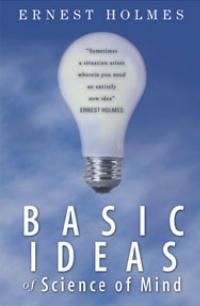 I often say that religion is for people who are afraid of going to hell and that spirituality is for those who have already been there.
I often say that religion is for people who are afraid of going to hell and that spirituality is for those who have already been there.I associate religion with an organized, dogmatic approach to theology and to human behavior. Spirituality is more an individual recogniton of the presence of divinity and how you live from that recognition.
People go to war over religion every day, even within the same denomination. I can't imagine anyone going to war over spirituality, because it is essentially free of dogma; it is more of a feeling of your connection to Spirit and to the worls around you. Religion can drive spirituality out of a person, replacing the feeling of connection with a groupthink concept of separation. Spirituality never leads you to feel shame, or that you are a miserable sinner, or unworthy in some way; it will lead you to feel small in the awesome nature of the presence of divinity, but never out of fear of an angry God.
Because of all of this, I think that spirituality, rather than religion, is the necessary force for change that can lead to the healing of our planet - actually the healing of humanity, for the planet is just fine except for what we are doing to it out of a mixture of greed, ignorance, fear, and arrogance.
Where religion drives us to a need to be "right," and makes others "wrong," spirituality allows for acceptance of other points of view, if not agreement with them. Where religion is often strident and rigid, spirituality is flexible (without the loss of integrity) and open. Many (most?) religious people are also spiritual - the problem, is that many are not.
Our religions, or at least the most fundamentalist branches of them, are creating so much intolerance, hatred, and violence today, that we are truly in a global crisis. Just when we need new and innovative thinking to step into a greater level of human behavior, we have a pulling back into old ways of thinking that are ultimately destructive. There is no need to give examples, for they are everywhere.
The good news is that there are thousands of spiritual people, whatever their religious affiliation or lack of one, who are generating leading-edge thinking and creative endeavors in every area of human activity. Many of these people have stepped away from mainstream politics and its divisiveness to work in collabrative networks of creative, pioneering souls. Much of this work is being done in faith communities that are more spiritual than religious, and much of it is completely separate from any organized faith tradition.
The work of these people barely penetrates the mainstream media. This is so because it takes the media awhile to generate an interest in what truly represents leading-edge creativity, and because there is a bias in the media to present only that which is reliably controversial to draw a predictable audience. So we see and hear much about Ann Coulter's latest contribution to American harmony and next to nothing about creatives like Barbara Marx Hubbard, Ray Kurzweil and others.
In my faith tradition, we stress the need to use the qualities of intelligence and love in all thought and in all actions. This spiritual approach leads to the discovery of the best of yourself - not that you are guilty of "original sin," but that you are connected to a Divine Itelligence and Love which is infinite and the Source of all Love. When you can truly come to see yourself as both worthy and an extension of an Infinite Spirit, it becomes impossible to do anything to harm another. If our major religions could produce that sense of a divine self in each of us, the earth would truly be healed. If they cannot, we must try something else.
Love and Light,
RevLockard
